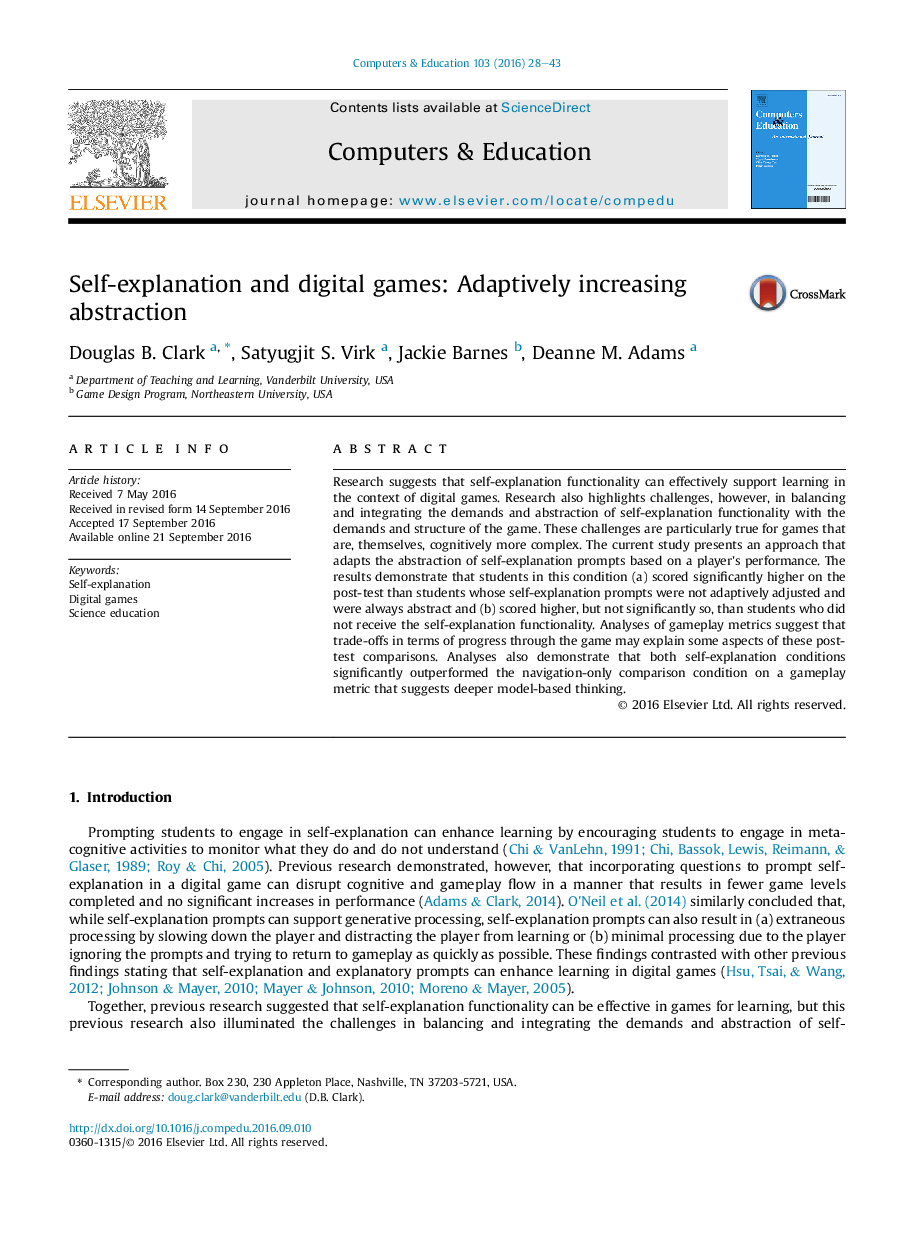| Article ID | Journal | Published Year | Pages | File Type |
|---|---|---|---|---|
| 4936893 | Computers & Education | 2016 | 16 Pages |
Abstract
Research suggests that self-explanation functionality can effectively support learning in the context of digital games. Research also highlights challenges, however, in balancing and integrating the demands and abstraction of self-explanation functionality with the demands and structure of the game. These challenges are particularly true for games that are, themselves, cognitively more complex. The current study presents an approach that adapts the abstraction of self-explanation prompts based on a player's performance. The results demonstrate that students in this condition (a) scored significantly higher on the post-test than students whose self-explanation prompts were not adaptively adjusted and were always abstract and (b) scored higher, but not significantly so, than students who did not receive the self-explanation functionality. Analyses of gameplay metrics suggest that trade-offs in terms of progress through the game may explain some aspects of these post-test comparisons. Analyses also demonstrate that both self-explanation conditions significantly outperformed the navigation-only comparison condition on a gameplay metric that suggests deeper model-based thinking.
Related Topics
Social Sciences and Humanities
Social Sciences
Education
Authors
Douglas B. Clark, Satyugjit S. Virk, Jackie Barnes, Deanne M. Adams,
